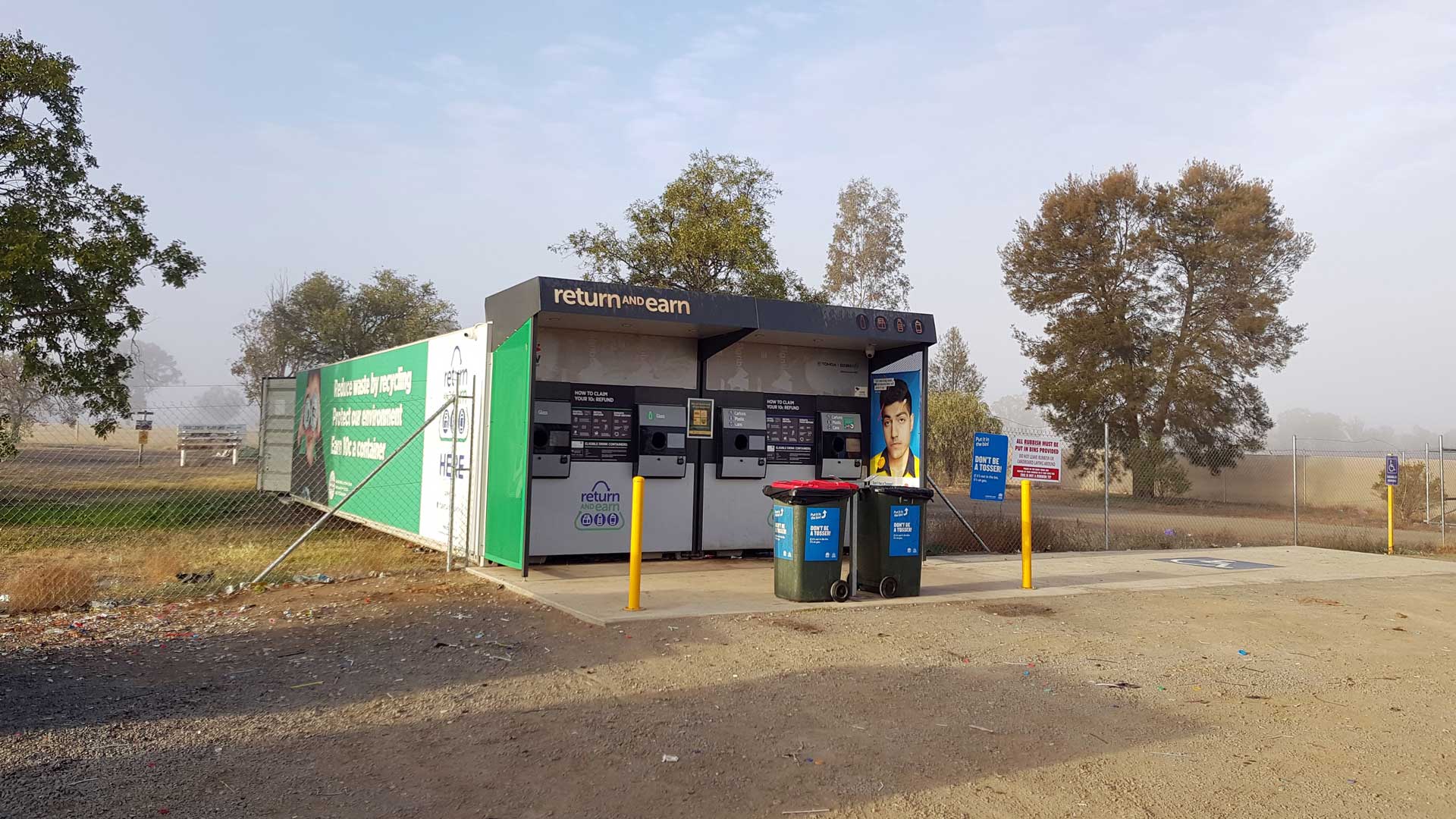Get the right experience for you. Please select your location and investor type.
IMPORTANT NEWS: Transition of investment management responsibilities
First Sentier Group, the global asset management organisation, has announced a strategic transition of Stewart Investors' investment management responsibilities to its affiliate investment team, FSSA Investment Managers, effective Friday, 14 November close of business EST.

Container Deposit Scheme
Finding investment gold in plastic rubbish
Lost amidst the noise around more expensive beer and soft drinks are the long-term benefits of the NSW container deposit scheme called Return and Earn, which was launched last week.
Theoretically, the NSW container deposit scheme should not be contentious. The ultimate winners of the initiative are our waterways and air quality – and our future generations. Framed in this way, paying around 20 cents more for your favourite beverage offers altruistic value that most can appreciate.
Apart from the benefits, it’s far from groundbreaking – the NSW scheme has come 40 years after a similar initiative commenced in South Australia.
Yet the scheme has been greeted with a mixed response, with much of the criticism stemming from the immediate costs borne by the beverage industry (who are helping to fund the scheme) and retailers (who are passing on costs via price increases). While their concerns about the impacts on their businesses are valid, also worthy of debate is the broader question of who should bear the environmental costs of the consumption of plastic containers.
On the flipside, for investors who have seen the value of companies eroded because of changing environmental policies, another question worth asking is: which companies are well-positioned for growth in this brave new world?
Historically, we’ve lived in a ‘linear’ economy of seemingly limitless inputs for goods which are bought, consumed and disposed, and where the costs of pollution are not borne by companies.
Given our planetary constraints, there is more potential than ever to benefit from a shift towards a circular economy – one which produces, consumes and maintains goods, rather than discarding them, or, following consumption, goods are collected and reused, refurbished or recycled.
Essential to this process are better design and greater resource productivity, and businesses that can deliver these solutions stand to benefit from the shift from a linear to a circular economy.
One of those businesses is Tomra, a Norwegian company which makes the reverse vending machines we are about to see in NSW.
The reverse vending machines allow consumers to recycle packaging materials and send products back. Last year alone, the machines collected 35 billion beverage containers, diverting waste to landfill and waterways, and helping to avoid greenhouse gas emissions from the equivalent of two million cars.
Payments facilitated by the machines can be used to incentivise consumers. Those who participate in the scheme ultimately will not pay much more for their drinks if they return their used containers and collect their refunds.
Until now, our beverage prices have not included the full costs of production. The disposal of the product has been free for the producer and consumer but not for the environment.
Many Australians may have heard about the Great Pacific Garbage Patch, a rubbish-strewn region of the Pacific Ocean, stretching some several hundred kilometres in diameter. It is staggering to think that, by 2050, there could be more plastic in the ocean than fish.
The very existence of the Great Pacific Garbage Patch tells us that we need to account for the environmental costs of production. There is a growing movement in the consumer goods sector for an extended producer responsibility where packaging or end-of-life goods are taken back for reuse, refurbishment or recycling.
In the economist jargon, we need to internalise the externality, and consumers and producers will begin to pay a more accurate price, one that reflects the costs on the environment and incentivises behavioural change.
As long-term investors, at Stewart Investors, we have a strong preference for the sharing of costs along the value chain. This approach helps to improve brand equity with consumers, and to manage relationships with other merchants in the chain, as well as encouraging the development of a more sustainable long-term economy.
It also provides technology incentives for the manufacturers to look into alternative designs and production processes, and gives pricing signals to the current recycling infrastructure to encourage improvement.
Sometimes people ask us whether there is any trade-off between sustainability and investment returns – a fair question.
Investors in Tomra have been rewarded with attractive returns; over the past five years, the company’s share price has risen by 22% per annum. Central to the Tomra thesis has been its positioning as a circular economy company and, more recently, its role in Responsible Production and Consumption, goal 12 of the UN Sustainable Development Goals.
Instead of there being a trade-off between sustainable practices and investment returns, the two, in fact, can go hand in hand.
Stewart Investors has invested in Tomra on behalf of their clients for the past five years.
Investment terms
View our list of investment terms to help you understand the terminology within this website.
Want to know more?
Important Information
This document has been prepared for general information purposes only and is intended to provide a summary of the subject matter covered. It does not purport to be comprehensive or to give advice. The views expressed are the views of the writer at the time of issue and may change over time. This is not an offer document, and does not constitute an offer, invitation, investment recommendation or inducement to distribute or purchase securities, shares, units or other interests or to enter into an investment agreement. No person should rely on the content and/or act on the basis of any matter contained in this document.
This document is confidential and must not be copied, reproduced, circulated or transmitted, in whole or in part, and in any form or by any means without our prior written consent. The information contained within this document has been obtained from sources that we believe to be reliable and accurate at the time of issue but no representation or warranty, express or implied, is made as to the fairness, accuracy or completeness of the information. We do not accept any liability for any loss arising whether directly or indirectly from any use of this document.
References to “we” or “us” are references to Stewart Investors. Stewart Investors is a trading name of First Sentier Investors (UK) Funds Limited, First Sentier Investors International IM Limited and First Sentier Investors (Ireland) Limited. First Sentier Investors entities referred to in this document are part of First Sentier Investors, a member of MUFG, a global financial group. First Sentier Investors includes a number of entities in different jurisdictions. MUFG and its subsidiaries do not guarantee the performance of any investment or entity referred to in this document or the repayment of capital. Any investments referred to are not deposits or other liabilities of MUFG or its subsidiaries, and are subject to investment risk including loss of income and capital invested.
Past performance is not a reliable indicator of future results.
Reference to specific securities (if any) is included for the purpose of illustration only and should not be construed as a recommendation to buy or sell. Reference to the names of any company is merely to explain the investment strategy and should not be construed as investment advice or a recommendation to invest in any of those companies.
Australia
In Australia, this document is issued by First Sentier Investors (Australia) IM Limited AFSL 289017 ABN 89 114 194 311 (FSI AIM). Stewart Investors is a trading name of FSI AIM.
United Kingdom
This document is not a financial promotion. In the United Kingdom, this document is issued by First Sentier Investors (UK) Funds Limited which is authorised and regulated in the UK by the Financial Conduct Authority (registration number 143359). Registered office: Finsbury Circus House, 15 Finsbury Circus, London, EC2M 7EB, number 2294743.
European Economic Area (“EEA”)
In the EEA, this document is issued by First Sentier Investors (Ireland) Limited which is authorised and regulated in Ireland by the Central Bank of Ireland (registered number C182306) in connection with the activity of receiving and transmitting orders. Registered office: 70 Sir John Rogerson’s Quay, Dublin 2, Ireland, number 629188.
Other jurisdictions
In other jurisdictions where this document may lawfully be issued, this document is issued by First Sentier Investors International IM Limited which is authorised and regulated in the UK by the Financial Conduct Authority (registration number 122512). Registered office 23 St. Andrew Square, Edinburgh, EH2 1BB number SC079063.


